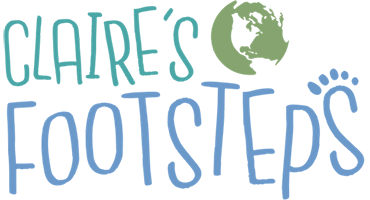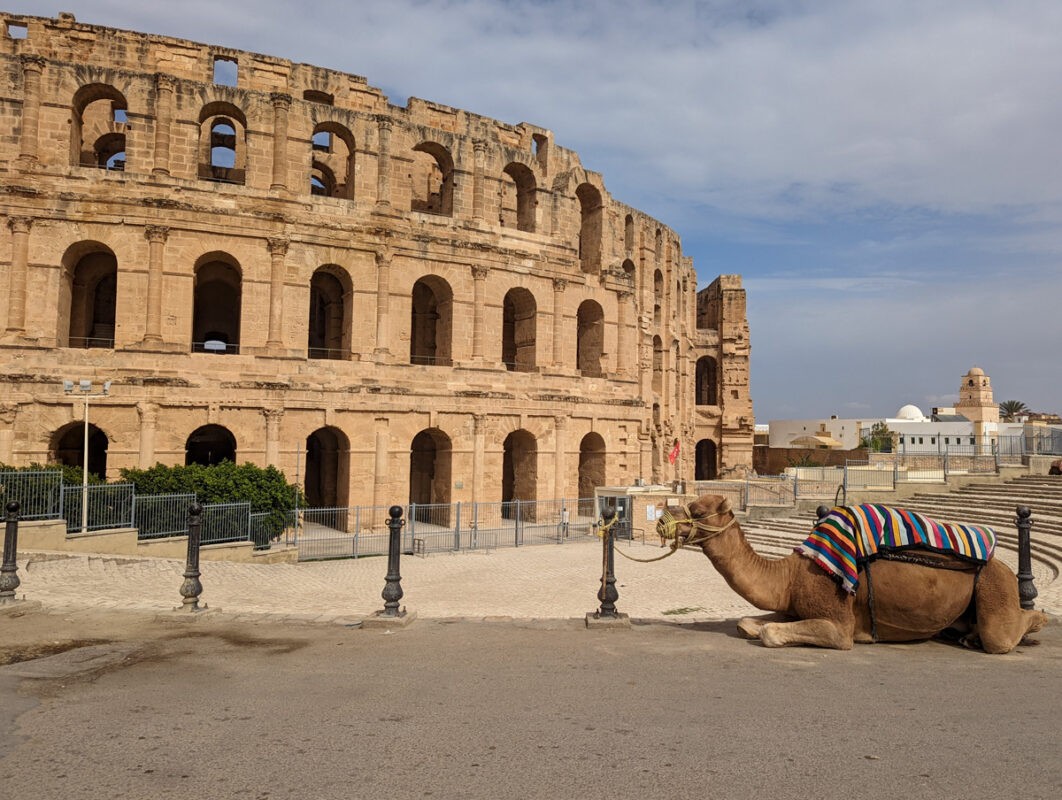Is Tunisia safe for travel? We’ll go into it in this article!
It may be the smallest country in North Africa, but Tunisia’s packed with UNESCO World Heritage Sites and thousands of years of history.
Not to mention the beaches – Tunisia boasts a stunning Mediterranean coastline, and that coupled with warm weather and cheaper prices than Europe saw it rise as a holiday destination in the late 00s.
But the terror attack near Sousse in 2015 caused Tunisia to be the victim of harsh blanket bans from Western governments, which stayed in place for years, advising citizens not to travel there.
These were lifted in 2017, and while Tunisia’s tourism economy has improved somewhat, some tourists remain hesitant about visiting, questioning Tunisia’s travel safety.
Armed with the statistics – attacks in Tunisia are about as rare as in Western Europe, I decided to book a trip to Tunisia in October 2022; and here are all my thoughts about its safety!
Just a quick note: I wasn’t a solo female traveller in Tunisia, as I visited with my partner, so I can’t speak for its safety for solo females. However, I have included a section about visiting Tunisia as a woman.
Also! Please bear in mind this is written solely from my perspective. Things can change anywhere, and I’m not giving any definitive answers, just sharing my own experiences.
Is Tunisia safe for travel?
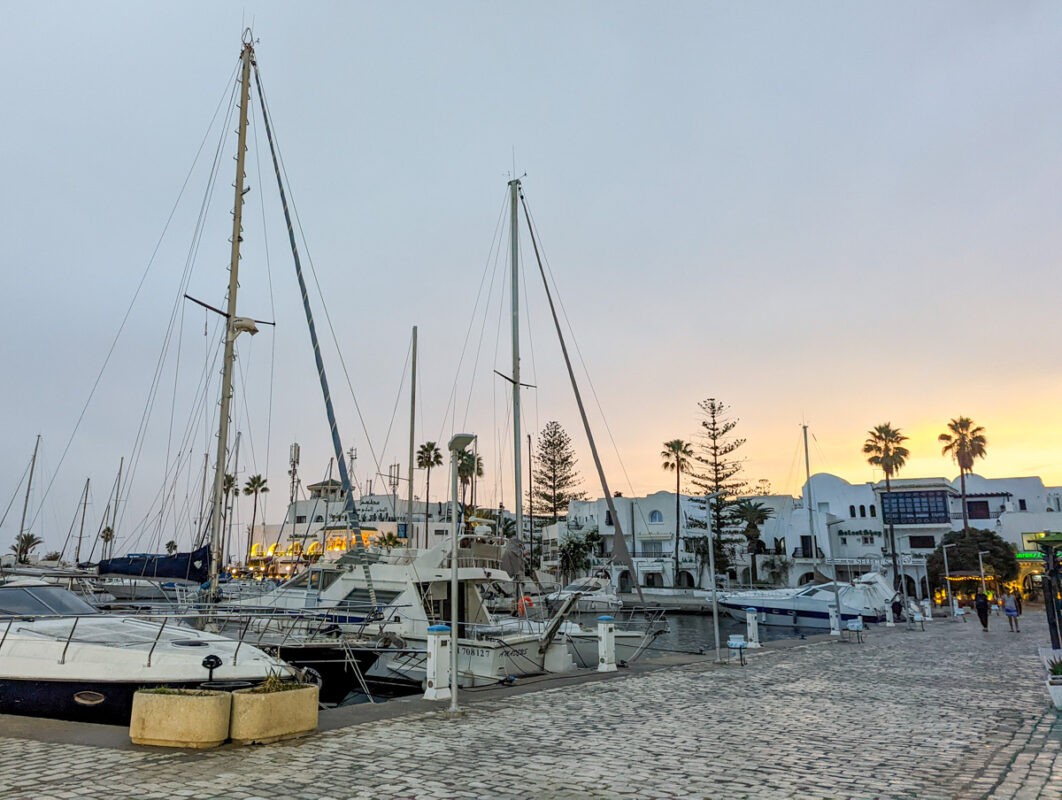
By and large, yes, I think that Tunisia is safe for holidays and travelling.
Sure, terror attacks have happened there – but they can, and do, happen anywhere. Plus, they certainly aren’t a common occurrence in Tunisia.
Tunisian people are generally very helpful and many of those that I spoke to were enthusiastic about the tourism industry improving.
I didn’t feel any particular different treatment due to being a woman, too (which I did encounter in Egypt).
The only issue we did have was with taxis overcharging us and taking us on incorrect routes – I’ll go into these in more detail later on in the post, but we found this easy enough to deal with.
Terror risk in Tunisia
Sadly, Tunisia was the victim of a two notable attacks in 2015, two of which have left a lasting impression on global minds.
The first occurred in March at the Bardo National Museum in Tunis, where gunmen opened fire, killing 21 tourists and a police officer. The victims hailed from multiple countries.
Three months later, in June, near the coastal town of Sousse, a gunman targeted tourists at the popular Riu Imperial Marhaba Hotel, leaving 38 people dead, most British.
The swift succession of these attacks stunned both the local population and the international community, which caused nations across the world to issue “do not travel” warnings for Tunisia.
These attacks are harrowing, but similar attacks have also taken place in the UK, France and Germany; in fact, also in 2015, the infamous Paris attacks took place, when at least 130 people died.
So, if you’re happy enough travelling to Western Europe, the risk of any kind of terror attacks happening is about the same.
Plus, Tunisia as a country has implemented a lot of procedures to help tourists feel safe.
All-inclusive resorts have full security, beaches close in the evenings and there is a strong police presence.
So, while these attacks did happen, they really can occur anywhere.
Personally, I’d worry much more about the risk of guns in the U.S. than in Tunisia.
Travelling as a woman in Tunisia
I didn’t have any particular issues with travelling as a woman in Tunisia, and, after my experience, I’d be happy to visit again on my own.
This is a contrast to Cairo, where I did experience some harassment and discomfort, and, in all honesty, wouldn’t bother visiting on my own – not necessarily because I think it would be unsafe, but just because I couldn’t be bothered with the harassment.
There are a few particular things that I did that probably made me safer as a woman (and in general) which I’ll go into in my “how to stay safe in Tunisia” section”.
Scams in Tunisia
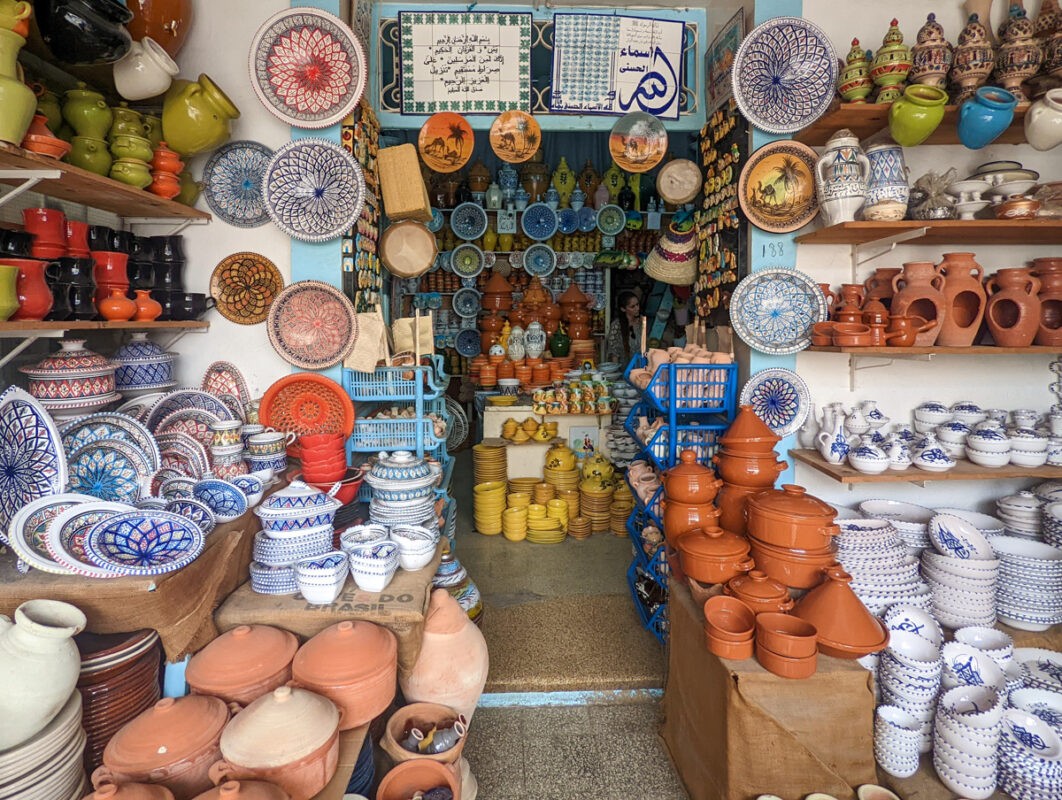
Tunisia isn’t immune to scams, and we experienced a very convoluted one while we were here!
We took a taxi from our hotel to Sousse city centre.
When we got out of the taxi, a man immediately approached us, said hello and explained he was a waiter at our hotel. We wouldn’t have usually believed him, but immediately mentioned the name of our hotel.
He explained that he had “the day off” because his wife was having their first baby – he even told us an elaborate story about how she visited the Sahara desert and took some herbal remedies that helped her become pregnant!
He then advised us to go to a certain area of the souk to avoid people scamming us on the other side. He then told us that he’d show us (we kept saying “Don’t worry about us – go and see your wife!”).
He basically proceeded to give us a mini guided tour of the souk, ending at a rather costly jewellery shop. He ushered us inside and then told us he had to go to see his wife!
A little bemused, we apologised to the man who owned the jewellery shop, told him we weren’t in the market to buy any, and then ventured back out into the souk.
At this point, we weren’t sure whether he was telling the truth about his wife/ knowing us or not… until we saw him talking to another group of tourists, presumingly telling them the same tale.
It wasn’t really a “scam” as the jewellery shop owner didn’t mind us not buying anything, but it was a bit of a bizarre situation, especially if the story about his wife going to the Sahara desert and having a baby wasn’t true!
We found it more funny than anything, but understand it could be a bit unnerving for some.
We weren’t sure how he knew where we were staying – we decided he either knew the taxi driver who told him or he knew our all-inclusive wristbands.
We were also taken into a carpet shop while we were on a tour in Tunisia, and were offered a few carpets at rather high prices (anything from $500 – $1,000); but again, this wasn’t really a scam, because we just told the carpet shop owner that we couldn’t buy them.
Taxis in Tunisia
The only situation that made us feel slightly unnerved in Tunisia was the taxis.
In Tunis, Bolt works well (although you have to pay cash). All of our Bolt drivers were very friendly!
Elsewhere, you’ll need to hail taxis – and you’ll notice huge discrepancies in price when it comes to meter and flat payments.
We had a taxi on the meter when we arrived in Sousse, and it cost us about $1 to drive 10 minutes.
When we asked for a taxi from outside the hotel, we were quoted anything from $10 – $20!
We also experienced this when we arrived in Tunis after taking the train. Our ride would have taken 5-10 minutes, and we couldn’t find a taxi driver who’d take us for less than $15.
Obviously, it’s not a huge amount of money, and we don’t mind paying a slightly higher tourist tax, but this was 10x higher!
We eventually relented with someone who took us for $10.
However, despite giving him clear directions to where we were staying, he took us to the other side of the city and then made us get out because somebody else wanted the taxi. Plus, the meter was reading at about $2 but he still wanted the $10.
We ended up walking the 45 minutes across Tunis to our hotel!
This didn’t make us feel unsafe, but it was frustrating, and I can understand how it might make some travellers feel uneasy.
Other experiences in Tunisia
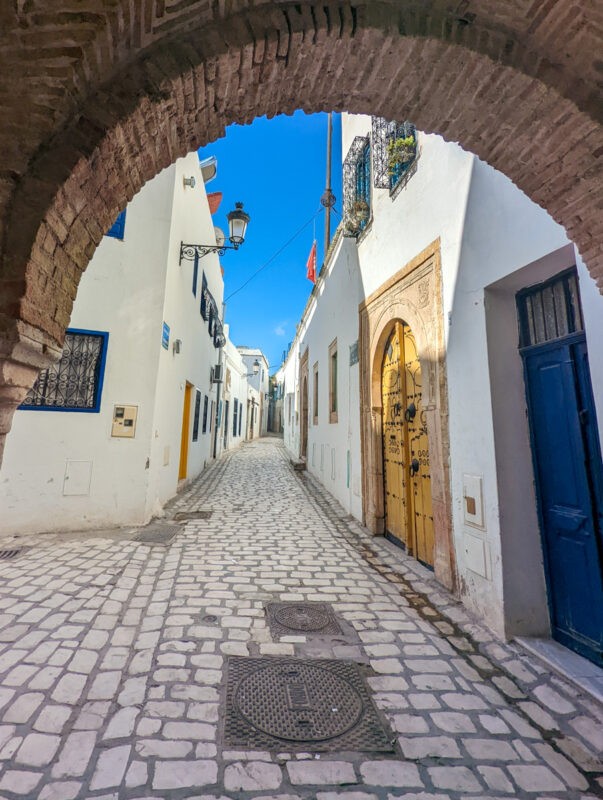
While these two incidents – which weren’t really incidents anyway – did happen, I want to stress that 95% of my interactions in Tunisia were very pleasant.
The hotel staff were lovely and friendly, quickly making me feel at home.
Tour guides were pleasant, and most people that we met in the souks were easygoing and chatty without being too pushy.
Despite some taxi drivers being a bit difficult, others were incredibly helpful, as was the louage driver who took us to Sousse, flagged us a taxi and asked to go on the meter.
So, while I do believe it’s important to be transparent about any difficult situations we had, I also want to stress that for every challenging encounter, there were 30 pleasant ones!
How to stay safe in Tunisia
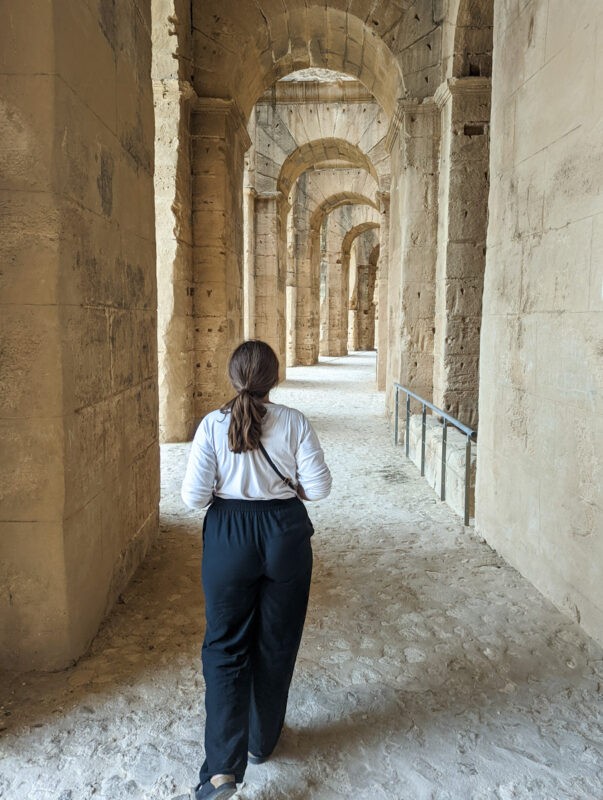
If you’ve read this far, you’ll probably realise that I don’t think there are any notable steps that you need to take to stay safe in Tunisia.
However, if you want to make sure your trip is as hassle-free as possible, I’d recommend the following:
Dress modestly
Tunisia is a largely Muslim country, and while it’s fairly liberal, I’d still recommend dressing modestly everywhere apart from international hotels and the beach.
This includes places like Sousse Medina.
I typically wore a t-shirt and shorts or dresses in the hotel, and when we ventured out I wore light trousers, long skirts and made sure I covered my shoulders (t-shirts are fine, though).
If you go into any mosques and you’re a woman, you’ll need to be fully covered, including your hair.
However, there’s no need to cover your hair anywhere else – many Tunisian women don’t wear a hijab in their day-to-day life.
Make sure you have travel insurance
This is more of a general travel tip, but please ensure you have travel insurance!
It’s vital for unforeseen medical expenses, lost luggage or travel disruptions.
Ensure your coverage caters to your specific needs, and you’ll travel with that added peace of mind!
I use and recommend SafetyWing.
They specialise in digital nomad insurance but you can purchase one-use policies with them too.
My favourite thing about them is that you can buy insurance when you’ve already left your home country, which is rare among other insurers!
Click here to read more about them.
Learn a little French or Arabic
Some Tunisians do speak English, but generally, Arabic and French are the spoken languages.
So, knowing a few basic phrases in these languages can work wonders.
I wish my language skills had been a bit better when we were liaising with the taxi drivers!
Ask locals for advice About customs and etiquette
To truly immerse yourself in Tunisian culture and navigate it smoothly, seek local insights.
Locals can provide the most up-to-date advice on customs, etiquette, and the nuances of daily life.
You can get local insights by asking somebody at your hotel or hiring a tour guide for the day.
Don’t drink the tap water
Tunisian tap water isn’t safe to drink; steer clear of it while you’re here!
If you don’t want to spend money on/ waste the plastic of bottled water, I’ve used Water to Go bottles all over the globe. You can read more about them here.
Tunisia safety FAQs
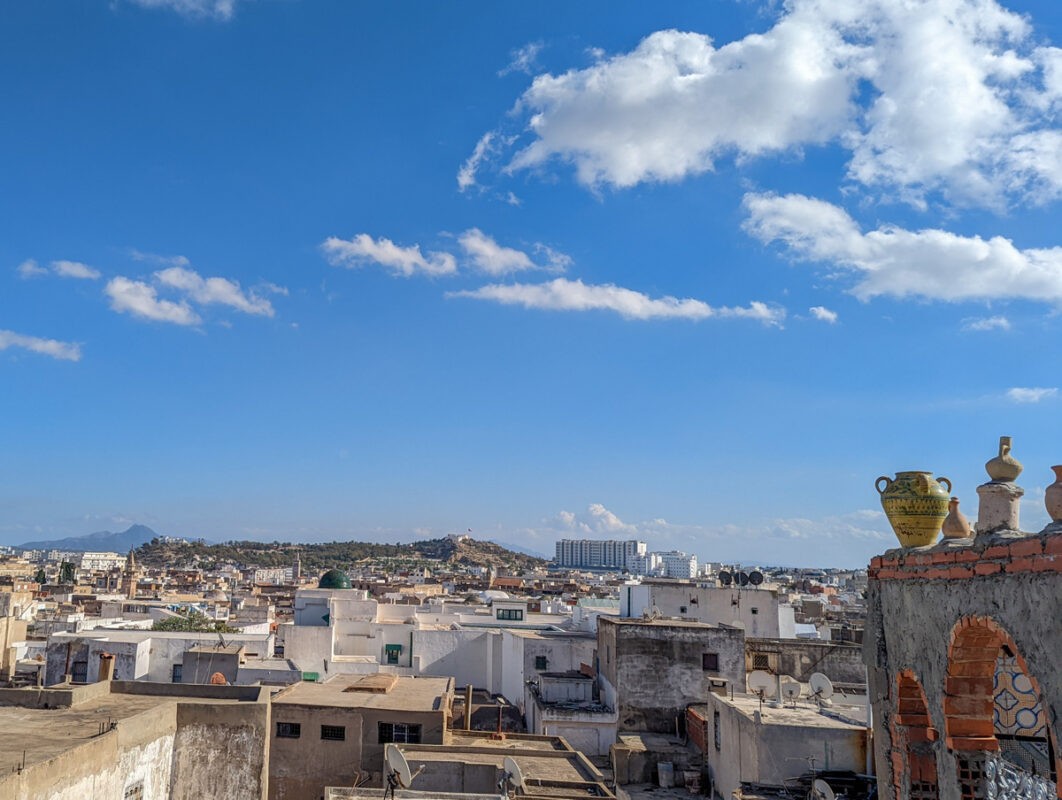
Is Sousse, Tunisia safe?
Since the 2015 incident, Sousse has upped its security game, especially around tourist hotspots. When visiting, it’s wise to stay informed, heed local advice, and always exercise standard travel safety practices.
Is Hammamet, Tunisia safe?
Hammamet, with its beautiful beaches and rich history, is a favourite among tourists. Generally, it offers a safe experience. However, always stay alert, be informed about local happenings, and respect cultural practices when you’re there.
Is Tunisia safe for American tourists?
Every year, Tunisia welcomes many American travellers. The country has worked hard to ensure the safety of tourists at key attractions. When planning your trip, it’s a good idea to keep an eye on updates from the U.S. Department of State and always follow general travel safety guidelines.
Is Monastir, Tunisia safe?
Monastir boasts a blend of history and coastal allure, and it’s typically a safe haven for tourists. Thanks to heightened security measures in recent years, you can expect a secure visit. Still, always be aware of your surroundings and follow standard travel advice.
